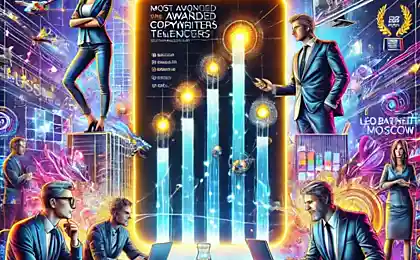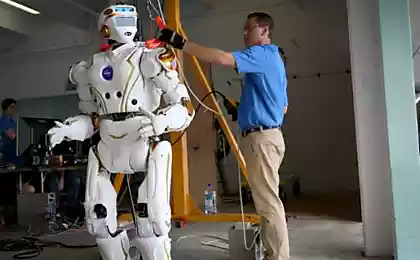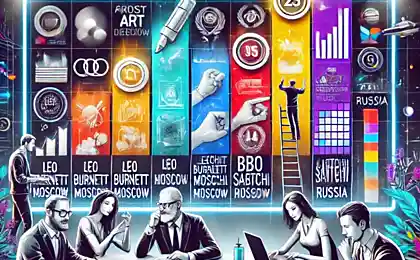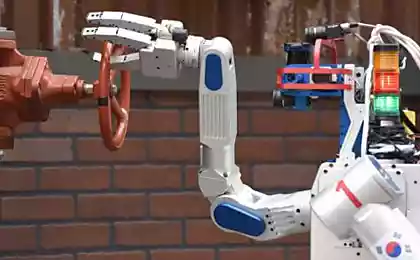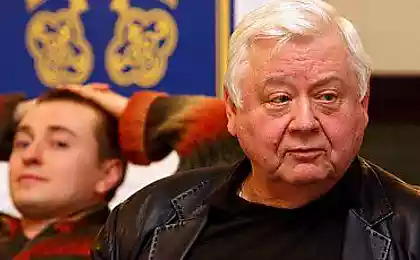Charles Hertzfeld: Director of DARPA and the godfather of ARPANET
"People are as important as ideas." I> (Herzfeld 2005) blockquote>
There are two Hertzfeld Charles (Charles Herzfeld), one worked on the creation of films "Black Swan", "The Wrestler" and «Her », other , as director of the DARPA , took a personal decision to create ARPANET .
Objectives ARPANET:
- Conducting experiments in the field of computer communications;
- Unification of the scientific potential of research institutions;
- Explore ways to maintain a stable connection in a nuclear attack;
- Development of the concept of distributed management of military and civilian agencies in the period of war.
Charles himself said the following: «The ARPANET was not started to create a Command and Control System that would survive a nuclear attack, as many now claim. To build such a system was, clearly, a major military need, but it was not ARPA's mission to do this; in fact, we would have been severely criticized had we tried. Rather, the ARPANET came out of our frustration that there were only a limited number of large, powerful research computers in the country, and that many research investigators, who should have access to them, were geographically separated from them. »
Short biography under the cut
Born in Austria June 29 1925, but later migrated to America and got citizenship there.
He studied at the Чикагском University and got a lecture on von Neumann and "fired up" information technology.
First physicist Charles Hertzfeld worked from 1951 to 1953 in Ballistic Research Laboratory the same one in which studies a shot at Kennedy) and 1953 to 1955 in Naval Research Laboratory (the same one where now build Railgun).
September 29, 1961 I went to work in DARAP`u (then was ARPA), the program coordinator Project Defender , forerunner US missile defense , (1961-1963)
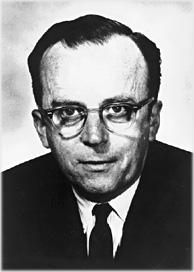
In DARPA Charles Hertzfeld heard enough acquainted with the "spiritual father of the worldwide network» Джозефом Licklider (physicist, mathematician, psychologist, психоакустик), who expressed ideas
- The need for computers operating in real time
- The need to create a network of computers with free access of any person from any place of the world to its resources ( Intergalactic Computer Network a > i>)
- On computers with simple user interfaces ( Man-Computer Symbiosis i> )
- The principle of selection and guidance (point-and-click),
- As well as anticipated phenomena such as digital libraries, electronic commerce (e-commerce), remote banking services (online banking), cloud computing
From 1963 to 1965 was deputy director, and from 1965 to 1967 was director of DARPA
After retiring from DARPA worked in the business sector (from 1967 to 1985 in ITT Corporation , from 1985 to 1990 in the Aetna ), then in 1990 returned to the defense industry Director of Defense Research and Engineering (1990-1991).
To this day, a consultant of private and government companies.
In 2012 was inducted Обществом Internet in Зал Internet fame
My favorite technique: i> Google Earth and similar sites. "Modern magic carpet that will carry to anywhere. When I was a kid, I dreamed about it, now I have it »
Hobbies: i> Diving and underwater photography
The slogan: i> «You owe it to the world, never give up»
Epitaph: i> «My life - a grand tour. I was a great traveler »
Favorite movie: i> Casablanca
What people do not know about you: i> «I am very shy, despite appearances.»
The article tells about a meeting of Charles and Joseph Licklider Hertzfeld, a formulation of the problem of what to do with the flow of data from the rockets 150 Mbit / s, for a meeting with the Bob Taylor
How Pacific Island Missile Tests Helped Launch the Internet
www.netaffair.org/people/Charles_Herzfeld
The Grill: ARPA Pioneer Charles M. Herzfeld on the Hot Seat
Interview in English for everyday work godfather ARPANET What was your introduction to computing? I>
When I was a graduate student at the University of Chicago, in 1948 or so, John von Neumann came and gave three seminars on electronic computing. He was instrumental in getting the ENIAC built, and he came to tell us about it. It was hugely important stuff, and it changed my life absolutely.
Then, before ARPA, J.C.R. Licklider gave two or three lectures at the Pentagon, and I remember those vividly. He said, The way we are doing computing is really pretty stupid. I think theres a better way. He was a brilliant man, and I became a disciple of his.
And a few years later, you and Licklider would end up at ARPA together, with Licklider the first director of its Information Processing Techniques Office. I>
Yes. IPTO was one of the things at ARPA that I became godfather of. I was the go-to guy if it got into trouble.
[The IPTO] directors changed the world, but I claim to be the godfather, not the father. And as godfather, I took their message to Congress.
What else did you do as godfather? I>
I signed the first two or three ARPA orders in 1966 and 1967 as director. I said, Do that build a network, however small and crappy it is. Lick was gone by then, but I had recruited Bob Taylor as the follow-on.
One day, Taylor dropped into my office, and he got $ 1 million in 20 minutes. [When Taylor recounts this story] he acts like I was sitting in my chair handing out million-dollar checks, but not so. I was sure that networking computers would change computing. I do not claim to have foreseen what happened, but I knew Licklider was on to something.
In those days, did you casually hand out big sums like that very often? I>
Whenever it was needed. My secret was that I always had money because there was a long list of things we were doing that we didnt have to do. I was ruthless about that.
What else did IPTO do in those early times? I>
We created the whole artificial intelligence community and funded it. And we created the computer science world. When we started [IPTO], there were no computer science departments or computer science professionals in the world. None.
Do you agree with the people who say that DARPA has pulled back from long-range, high-risk projects? I>
There certainly has been a change, and its not for the better. But it may be inevitable.
Im not sure one could start the old ARPA nowadays. It would be illegal, perhaps. We now live under tight controls by many people who dont understand much about substance.
What was unique about IPTO was that it was very broad technically and philosophically, and nobody told you how to structure it. We structured it. Its very hard to do that today.
But why? Why couldnt a Licklider come in today and do big things? I>
Because the people that you have to persuade are too busy, dont know enough about the subject and are highly risk-averse.
When President Eisenhower said, You, Department X, will do Y, theyd salute and say, Yes, sir. Now they say, Well get back to you. I blame Congress for a good part of it. And agency heads are all wishy-washy. Whats missing is leadership that understands what it is doing.
The Washington Post recently ran a Page One story saying that the FBI had given emergency responders $ 25 million in computer kits for exchanging information on suspected explosives, including weapons of mass destruction. But, the Post said, many of the kits didnt work and some were just abandoned. What do you make of that kind of report? I>
We are becoming incapable of handling a technology challenge of any major magnitude. We are losing the ability to do big, complicated things. In your example, nobody thought that someone had to organize a maintenance space for repairs, spare parts and so on. They only thought about buying the radios.
Is it partly a failure of technology? I>
Absolutely not. We have technology on the shelf we dont know what to do with, and we are buying more every day, to the tune of billions of dollars a year. Whats missing is leadership that understands what it is doing. The whole thing is just off the rails.
Whats going on at the National Science Foundation? I>
My friends complain that they have to submit 10 proposals to get one funded. Cuckoo. And its tremendously demoralizing and very inefficient. The process is too risk-averse. But doing really good research is a high-risk proposition. If the system does not fund thinking about big problems, you think about small problems.
Could there be another unhappy surprise like Sputnik? I>
Yes, I expect it. In the biological world, it may be an accident: Someone is doing virus research and comes up with something that spreads easily and kills a lot of people. There is terrorism. It is absolutely thinkable that these guys will steal a nuclear weapon, have some technical help and blow it off in New York Harbor.
Source: habrahabr.ru/post/228137/


